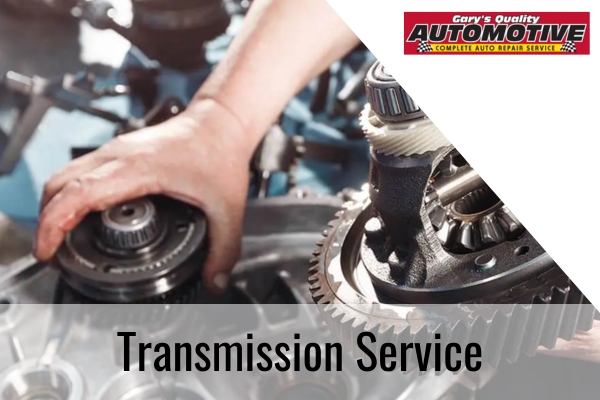Is transmission service necessary?
Yes, regular service protects the gearbox, preserves smooth shifts, and prevents costly breakdowns. If you’re wondering, “Is transmission service necessary? " The short answer is yes. Service intervals vary by vehicle and driving conditions, but skipping maintenance lets heat, debris, and worn fluid accelerate internal wear. Using the fluid type your manufacturer specifies is critical. Here's why transmission service matters:
- Preserves fluid quality: Clean fluid maintains hydraulic pressure and lubrication, helping shift timing stay consistent.
- Controls heat: Fresh fluid carries heat away from the clutches and valve body and protects seals.
- Smooth shifting: Correct level and viscosity reduce slip, flare, and harsh engagement.
- Extends component life: Less friction and debris mean longer life for bands, clutches, and solenoids over more miles.
- Saves money: Routine care is far cheaper than emergency transmission repair and unexpected downtime.
What does transmission service include?
- Drain-and-fill or full fluid exchange using the manufacturer-specified fluid at the correct level.
- Filter replacement (where equipped), plus cleaning the pan and magnet.
- Inspection of gaskets, seals, and cooler lines to catch minor leaks early.
- Road test and a scan for adaptations, temperature data, and stored fault codes, and confirm operation.
What happens if you skip it?
- Rough or delayed shifts, shudder on acceleration, or slipping under load.
- Overheating darkens fluid and accelerates internal wear.
- Contaminants that clog passages and wear the valve body, leading to transmission repair.
- Warning lights or limp mode can leave you stuck and paying for towing and transmission repair.
How often to schedule:
- Many vehicles: every 30,000–60,000 miles; severe use (towing, heat, city traffic) shortens intervals.
- Notice new shift behavior, leaks, or a burnt smell? Service now and document it for warranty records.
- After heavy towing, mountain driving, or track use, schedule earlier and consider fluid analysis.
So, is transmission service necessary? Absolutely. It’s far cheaper than unexpected transmission repair, improves drivability, and helps your car shift cleanly for years. Before a road trip, or if you tow, commute in traffic, or notice new shift behaviors, schedule service and keep records. A modest maintenance investment today can save thousands tomorrow and keep you confidently on the road.
Need to know more about why is transmission service necessary? Contact our ASE Certified Technicians at Gary’s Quality Automotive for more information about transmission repair and to schedule an appointment. Our auto shop proudly serves vehicle owners in Grand Island, NE, Wood River, NE, and Doniphan, NE.

Yes, regular service protects the gearbox, preserves smooth shifts, and prevents costly breakdowns. If you’re wondering, “Is transmission service necessary? " The short answer is yes. Service intervals vary by vehicle and driving conditions, but skipping maintenance lets heat, debris, and worn fluid accelerate internal wear. Using the fluid type your manufacturer specifies is critical. Here's why transmission service matters:
- Preserves fluid quality: Clean fluid maintains hydraulic pressure and lubrication, helping shift timing stay consistent.
- Controls heat: Fresh fluid carries heat away from the clutches and valve body and protects seals.
- Smooth shifting: Correct level and viscosity reduce slip, flare, and harsh engagement.
- Extends component life: Less friction and debris mean longer life for bands, clutches, and solenoids over more miles.
- Saves money: Routine care is far cheaper than emergency transmission repair and unexpected downtime.
What does transmission service include?
- Drain-and-fill or full fluid exchange using the manufacturer-specified fluid at the correct level.
- Filter replacement (where equipped), plus cleaning the pan and magnet.
- Inspection of gaskets, seals, and cooler lines to catch minor leaks early.
- Road test and a scan for adaptations, temperature data, and stored fault codes, and confirm operation.
What happens if you skip it?
- Rough or delayed shifts, shudder on acceleration, or slipping under load.
- Overheating darkens fluid and accelerates internal wear.
- Contaminants that clog passages and wear the valve body, leading to transmission repair.
- Warning lights or limp mode can leave you stuck and paying for towing and transmission repair.
How often to schedule:
- Many vehicles: every 30,000–60,000 miles; severe use (towing, heat, city traffic) shortens intervals.
- Notice new shift behavior, leaks, or a burnt smell? Service now and document it for warranty records.
- After heavy towing, mountain driving, or track use, schedule earlier and consider fluid analysis.
So, is transmission service necessary? Absolutely. It’s far cheaper than unexpected transmission repair, improves drivability, and helps your car shift cleanly for years. Before a road trip, or if you tow, commute in traffic, or notice new shift behaviors, schedule service and keep records. A modest maintenance investment today can save thousands tomorrow and keep you confidently on the road.
Need to know more about why is transmission service necessary? Contact our ASE Certified Technicians at Gary’s Quality Automotive for more information about transmission repair and to schedule an appointment. Our auto shop proudly serves vehicle owners in Grand Island, NE, Wood River, NE, and Doniphan, NE.


